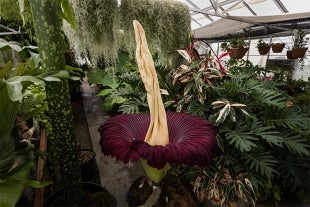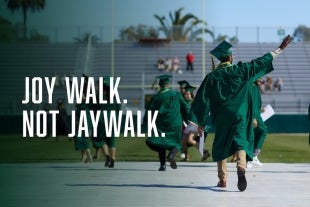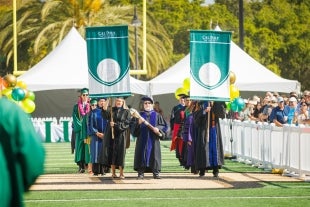Cal Poly Funds 14 Faculty Research Projects
Contact: Keegan Koberl
805-458-9302; kkoberl@calpoly.edu
SAN LUIS OBISPO — Cal Poly’s division of Research, Economic Development and Graduate Education (R-EDGE) announced the 14 awards for the 2022-23 cycle of the Research, Scholarly and Creative Activities (RSCA) grant program.
Supported by funds from the CSU Chancellor's Office and the Cal Poly Provost's Office, the RSCA faculty grant program is designed to enable faculty to contribute new knowledge through robust programs of scholarship focused on strengthening California socially, culturally and economically.
“The Research, Scholarly, and Creative Activities Grant Program provides annual funding to faculty for their ongoing engagement in research and creative activities and demonstrates a campus commitment to the teacher-scholar model,” said Dawn Neill, chair of the Grants Review Committee of the Academic Senate. “It is great to see the work faculty at Cal Poly are doing across the university.”
R-EDGE received 48 proposals requesting over $800,000, and funds were awarded to 14 projects.
"I appreciate our faculty members’ commitment to advancing their scholarship and research in their respective fields,” said Cynthia Jackson-Elmoore, Cal Poly provost and executive vice president for Academic Affairs. “Their success benefits our students and the entire campus community.”
The RSCA program, active at Cal Poly since 2014-15, has provided over $3 million in grants to faculty members over this period.
The 2022-23 awarded projects are:
- “Detection of Molecular Mechanisms Associated with Mycobacterium Avium Subspecies Paratuberculosis Infection Using Machine Learning Approach”; Mohammed Abo-Ismail (Animal Science), Fernando Campos-Chillon (Animal Science), Paul Anderson (Computer Science and Software Engineering), Franz Kurfess (Computer Science and Software Engineering), Michael M. La Frano (Food Science and Nutrition) and Siroj Pokharel (Animal Science).
- “Oral Histories of Kuwait's Lost Palestinian Community”; Farah Al-Nakib (History).
- “Testing Whether Decontextualizing Information Enhances Memory: Applications for Real-World Learning”; James Antony (Psychology and Child Development) and Kelly Bennion (Psychology and Child Development)
- “Energy-Efficient Computing for Extreme Autonomous Nano-drones"; Joseph Callenes-Sloan (Computer Engineering).
- “Light Pollution and the Evolution of the Avian Eye”; Clinton Francis (Biological Sciences).
- “Building an Anti-Racist Community of Practice Among Current and Future Elementary School Teachers in San Luis Obispo, California”; Amanda Frye (Liberal Studies) and Tina Cheuk (School of Education).
- “Tumor-on-a-Chip for Screening Cancer Therapies”; Christopher Heylman (Biomedical Engineering).
- “A Novel Approach to Measuring Ages of Individual Stars in Our Milky Way Galaxy”; Elizabeth Jeffery (Physics).
- “Creating a Gender-Inclusive Construction Site: Analyzing and Redesigning a Construction Industry Artifact”; Stacy Kolegraff (Construction Management) and Kylie Parrotta (Social Sciences).
- “Buddhism and the Making of Modern India”; Padma Dorje Maitland (Architecture).
- “Nuestra Ciencia: Impact of Bilingual Science Instruction on Science Identity Construction in Latinx Students”; Jasmine Nation (Liberal Studies) and Alejandra Yep (Biological Sciences).
- “Decision Support Tools for Postfire Assessment of Soil Burn Severity”; Stewart Wilson (Natural Resources Management and Environmental Science), G. Andrew Fricker (Social Sciences) and Jonathan Ventura (Computer Science and Software Engineering).
- “Developing Transformative VR Learning Experiences About Climate Change in Higher Education”; Hocheol Yang (Graphic Communication), Aubrie Adams (Communication Studies) and Ye Shen (Experience Industry Management).
- “It’s the Heart That Matters: The Effect of Benefactor Income on Perceived Motivation, Moral Elevation, and Donation Behaviors”; Miranda Yin (Marketing).



